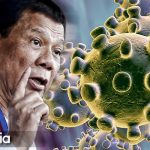According to a central government directive and online notices published by two Chinese universities, the publication of academic research on the origins of the novel coronavirus (COVID-19) now has restrictions.
Academic papers about COVID-19 will undergo a careful examination before getting published. Studies concerning the origin of the virus will be inspected thoroughly and can only be published upon the approval of central government officials.

A medical expert in Hong Kong who worked with Chinese researchers to publish an analysis of COVID-19 cases said that things weren’t this serious back in February.
This just seems to be one of those efforts of the Chinese to take control of the narrative around the origins of COVID-19.
An anonymous Chinese researcher says that the Chinese don’t care about facts, and will continue to divert attention away from the general understanding that the virus came from China.
“I think it is a coordinated effort from (the) Chinese government to control (the) narrative, and paint it as if the outbreak did not originate in China. And I don’t think they will really tolerate any objective study to investigate the origination of this disease.”
Everything is checked before going to the next stage.
“I think the importance is that the international scientific community must realize that any journal or manuscripts from (a) Chinese research institution has kind of been double-checked by the government.”
“It is important for them to know there are extra steps between independent scientific research and final publication,” says the researcher.
The Ministry of Education’s science and technology department says “academic papers about tracing the origin of the virus must be strictly and tightly managed.”
The academic researches about the virus must first go through the Education Ministry’s science and technology department. which will submit the papers to a task force operating under the State Council for vetting. The universities will be notified by the task force on whether the papers can be published in journals.
Other COVID-19 studies will be examined by universities’ academic committees, based on conditions such as the “academic value” of the study, and whether the “timing for publishing” is right.
Instructions on this were given on March 25 during a meeting by the State Council’s task force.
The Fudan University in Shanghai posted the directive on its website, but a staff member said that “It is not supposed to be made public—it is an internal document,”
The page of Fudan University was then taken down.
David Hui Shu-cheong, a respiratory medicine expert at the Chinese University of Hong Kong, and a team of Chinese researchers did not have their paper on clinical analysis of COVID-19 cases undergo extra examination in February.
“The process was really simple then.
“There was completely no restriction at all.”
He doesn’t really know why.
“I don’t know if it is because some researchers published something that is considered sensitive domestically in China. (I’m) not sure if it is because of the controversy about the origin of the virus later, and the non-sensitive stuff becomes sensitive too.”
Wang Lan, the editorial director of the Chinese Journal of Epidemiology, said all COVID-19 papers have to go through an approval process for “major topics” after submission to journals.
“It has always been the case. They have to be approved by three levels of organizations. It’s a long process.”
The knowledge about the origins of the virus by billions is that it came from the Huanan Seafood Market in Wuhan and even scientists have belief in this theory.
But questions about the origins of the virus still exist. Zhao Lijian, a spokesperson of the Chinese Foreign Ministry, said that the virus came from the US and spread to China via US troops.
Yanzhong Huang, a senior fellow for global health at the Washington-based Council on Foreign Relations said that questions about the origin are a very sensitive topic to the Chinese.
“It is no surprise that the government seeks to control related scientific research so that the findings do not challenge its own narrative on the origin of the virus and the government response to the crisis.
“The danger is that when scientific research is subject to the needs of those in power, it further undermines the credibility of the government narrative, making accusations of underreporting and misinformation more convincing.”
A controversial documentary called Tracking Down the Origin of the Wuhan Coronavirus by Epoch Times has opened many eyes as it went in-depth into the origins of the new pandemic.
On January 1, the Huanan Seafood Market closed for good, and Guan Yi, a Hong Kong expert said that it looked like they were trying to cover up a crime scene.
The Institute of Virology of China then confirmed that unknown pneumonia came from wild animals in the market.
But on January 24, The Lancet’s article Clinical features of patients infected with 2019 novel coronavirus in Wuhan, China Clinical features of patients infected with 2019 novel coronavirus in Wuhan, China suggested that the virus might not have originated from the market, since the first case on December 1 showed that the patient had no history of visiting the seafood market.
Shortly after it was also found that out of the 41 new cases, 14 of them were unrelated to the seafood market. In addition, the market does not even sell bats (said to be the origin animal species of the virus), contrary to what Dr. Shi Zhengli has announced, who is also known as the virologist responsible for figuring out how coronaviruses can be transmitted from animals to humans.
The P4 laboratory located in Wuhan Institute of Virology has various similar viruses, and many say that a leakage caused the virus to spread. But the Chinese Communist Party (CPP) instead blamed the seafood market, which again, has no bats.
The CPP then barred international experts from joining the investigation on COVID-19, which made them look even more suspicious.
Dr. Francis Boyle, famous for drafting the Biological Weapons Anti-Terrorism Act of 1989, thinks that COVID-19 is a weapon.
“The novel coronavirus we’re facing here is an offensive biological warfare weapon.”
The Director-General from the institute also gave an entry that said, “Notice regarding the strict prohibition of disclosure of any information related to the Wuhan unknown pneumonia.
“National Health Commission clearly mandates that all detection, empirical data, results, and conclusions related to this outbreak cannot be published on self-media or social media, nor disclosed to any media (including state media) or collaborative organizations (including any technical services companies).”


